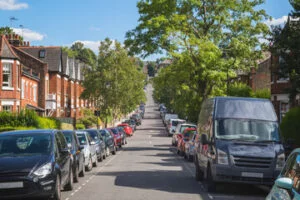By Gurkha Insight • UK & World News • Aug 26, 2025 19:33 PM • 134 views

In a landmark move to enhance road safety, the UK government has introduced sweeping changes to driving licence regulations for motorists aged 55 and above. Effective July 2025, the new rules mandate stricter medical checks, more frequent renewals, and compulsory vision assessments—marking a significant shift from the previous focus on drivers over 70.
This article breaks down the key updates, their implications, and actionable steps for affected drivers.
Key Changes at a Glance
1. More Frequent Renewals Drivers aged 55+ must now renew their licence every three years (previously every 10 years until age 70) 413.
Lorry and bus drivers (Categories C/D) face annual renewals with enhanced medical checks [10].
2.Mandatory Vision Tests
A DVLA-approved optician’s eyesight certificate is now required at each renewal, replacing the self-declaration of reading a number plate from 20 metres. 412.
Conditions like glaucoma or cataracts must be disclosed; failure risks licence revocation [12].
3. Stricter Health Declarations Renewal forms demand detailed medical histories, including diabetes, heart conditions, sleep apnoea, and neurological disorders [412].
GPs may be consulted for verification, with fines up to £1,000 for non-disclosure 1213.
4.New Online Renewal System
The DVLA has launched a streamlined digital portal for over-55s, requiring:
Proof of identity (e.g., passport).
Vision test certification.
Updated health declaration.
Recent passport-style photo.
Fees: £14 (online) or £17 (postal) 1315.
Why the Changes?
The reforms follow a 2024 government study linking older drivers to accidents caused by undetected health impairments. 8. Key findings:
Drivers over 75 account for 25% of road fatalities despite making up 14% of licence holders [8].
Underreporting of medical conditions is widespread, with fewer than 10% of cases flagged by doctors [8].
Road safety advocates, including RoSPA and Age UK, support the measures, while some argue they unfairly target healthy older adults 49.
Controversy and Criticisms
"Lifeline" Concerns: Rural drivers, like 85-year-old Reg Harris, fear losing independence without adequate public transport alternatives 8.
GP Burden: Doctors warn of increased workloads due to mandatory medical verifications 8.
Enforcement Gaps: Critics highlight reliance on self-reporting, with no legal requirement for doctors to notify the DVLA 812.
The government insists the rules aim to prolong safe driving, offering adaptations (e.g., vehicle modifications) instead of outright bans where possible [49].
What Drivers Should Do Now
Book an Eye Test: Ensure compliance with the new vision standards 12.
Consult Your GP: Discuss any chronic conditions and gather medical records 413.
Monitor Renewal Deadlines: The DVLA sends reminders 90 days prior to 1315.
Explore Alternatives: If driving becomes unsafe, consider community transport or Blue Badge parking permits 49.
The Bottom Line
These changes reflect a proactive approach to ageing and road safety. While adjustments may be inconvenient, they aim to balance mobility with public protection. Affected drivers should act early to avoid penalties, including fines or licence invalidation 1213.
For official guidance, visit:
DVLA Licence Renewal
Age UK’s Driving Advice
Stay informed—road safety is a shared responsibility.



